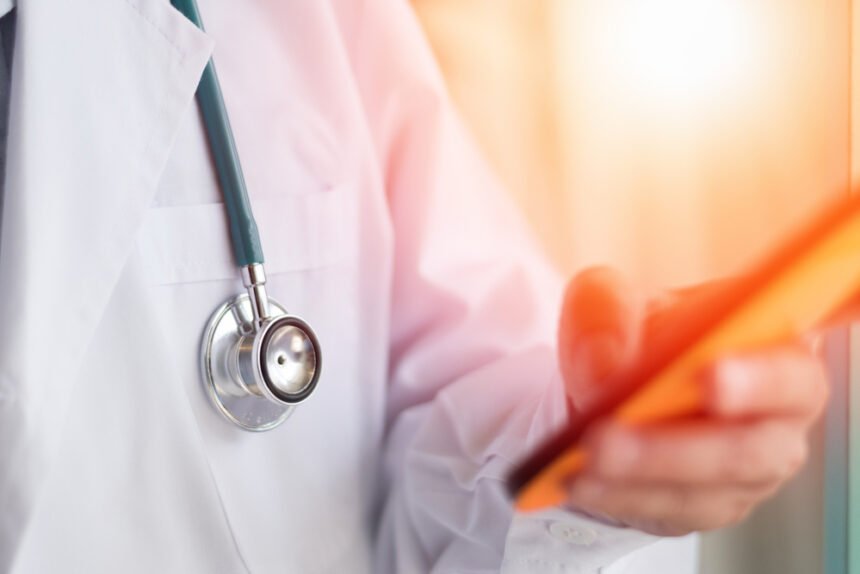Medical apps have hit the market so that millions of patients can benefit from remote consultations, fast answers to their queries, and tracking the general health condition. The choice of healthcare apps is enormous. One can find apps for such purposes as emergency care, specific disease care, general hospital purposes, online consultations, progress tracking, getting medical references, and more. According to the Forbes prediction for 2019, the digital tech including mHealth apps for patients and telehealth applications will grow 30% in 2019 and reach more than $25 billion in revenue globally. Despite that, apps remain overboard of the mainstream use. The experts of the MedPanel research center claim that the technology could become more efficient as part of the EHR (Electronic Health Record) in hospitals. This innovation is possible if the medical institutions, as well as the doctors? community, approve and support it. According to the research of MedPanel, doctors say that 38% of patients not using wearable and 42% of patients not using an app could benefit from doing so. And only 15 % of doctors talked to their patients about mobile health technology. Why are they skeptical about the apps? Do doctors really benefit from them? Let?s look at the facts of how medical apps influence doctors.
Patients? autonomy
Almost anyone can learn some basics of medicine. Some apps teach people from an ordinary citizen to a medical student how to provide the first medical aid in urgent cases. In many cases, awareness of the right algorithm of actions can save lives. However, patients also download medical apps to treat any symptoms they have. Of course, it can be harmful to their health. Even a small mole not diagnosed on time can turn to be melanoma. So patients? autonomy in making medical decisions has two sides, a positive and a negative one. However, 40% of doctors think that using medical apps by patients could reduce the number of visits to doctors.
Medical records all in one place
Visiting a hospital can become a total disaster for patients. They have to fill in forms, find results, sign other papers. Collecting all this stuff takes time and effort. Medical apps for hospitals can enable users to keep all the medical records in one place and deprive patients of the bureaucratic noise. Also, general hospital apps may include functions for efficient communication between doctors and patients.
Online consultations
One of the most significant achievements of mobile technology is telemedicine. Online consultations are accessible in the most remote locations with an internet connection. Online consultations are a great saving time advantage for people from rural areas as well as doctors.
Tracking health conditions
Once again, reaching patients can be severe. However, in cases of chronic diseases, they need to be checked up all the time. With mobile apps that provide health tracking, it is not a problem at all. For example, patients with diabetes can check their sugar level and send the indicators to their physicians. In this way, both a patient and a doctor benefit from the use of the app if it is precise enough.
Referencing and continuing education
Doctors never stop learning. They daily learn from practice, and good doctors revise the theory as well. Like all, they have only 24 hours a day. So where do they have to find time to review neverending manuals on thousands of cases? For example, they can turn the ?dead time? such as commuting or lunch breaks into a brief study session. It is possible with numerous referencing mobile apps that won?t let doctors forget the most critical information.
Reducing cost
Skype consultations and other telemedicine services can be cheaper than regular hospital visits. It is a reasonable tendency for patients, but what about doctors? Doctors can provide quality service if the connection is good enough. Poor connection leads to poor treatment that can deteriorate a situation. Also, while an online diagnosing may be appropriate in cases of a bad cold or headache, doctors might feel uncomfortable examining patients through a video chat in more complicated situations. Still, telemedicine provides healthcare workers with many tools that make its use convenient. For example, the built-in online payment system makes the billing process faster. Also, doctors can be more flexible in scheduling meetings online during vacations. Technology changes everything, including the development of medicine. Still, it?s hard to paint everything black and white. Mobile healthcare apps opened plenty of opportunities for doctors and patients such as a vast database for self-education, capabilities for remote check-ups and illness tracking, collecting and preserving medical data, and more. But not all apps meet the highest standards. So both doctors and patients should keep in mind that only tested and quality apps can be trusted.

